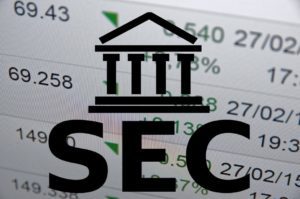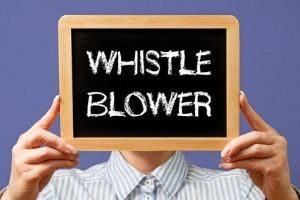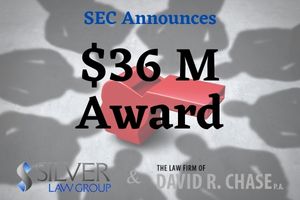 While some whistleblowers experience guilt, others are struggling with anger. Frequently, those who submit a whistleblower complaint to the Securities and Exchange Commission (SEC) have been wronged. This wrongdoing may manifest financially, emotionally, or both.
While some whistleblowers experience guilt, others are struggling with anger. Frequently, those who submit a whistleblower complaint to the Securities and Exchange Commission (SEC) have been wronged. This wrongdoing may manifest financially, emotionally, or both.
Importantly, the SEC does its part to incentivize whistleblowers by offering the opportunity to financially recoup some of their losses. Those who provide “original information” to the SEC, which leads to a successful action and monetary sanctions exceeding $1 million against the wrongdoer, are entitled to an award. While eligible whistleblowers will be awarded a percentage of the sanctions recouped, this award is not the primary motivation behind blowing the whistle to begin with. Continue reading
 SEC Whistleblower Lawyer Blog
SEC Whistleblower Lawyer Blog


 During the 2020 fiscal year, the
During the 2020 fiscal year, the  After you and your legal team have filed a whistleblower complaint with the SEC, it may feel anticlimactic. When the
After you and your legal team have filed a whistleblower complaint with the SEC, it may feel anticlimactic. When the “
“ Of course, if you become a
Of course, if you become a  For would-be
For would-be  On September 24, 2021, the Securities and Exchange Commission (SEC) announced that it awarded roughly $36 million to a whistleblower who provided information and assistance that “significantly contributed to the success of an SEC enforcement action as well as actions by another federal agency.”
On September 24, 2021, the Securities and Exchange Commission (SEC) announced that it awarded roughly $36 million to a whistleblower who provided information and assistance that “significantly contributed to the success of an SEC enforcement action as well as actions by another federal agency.”